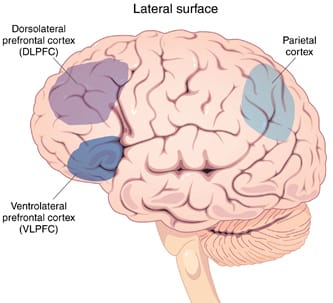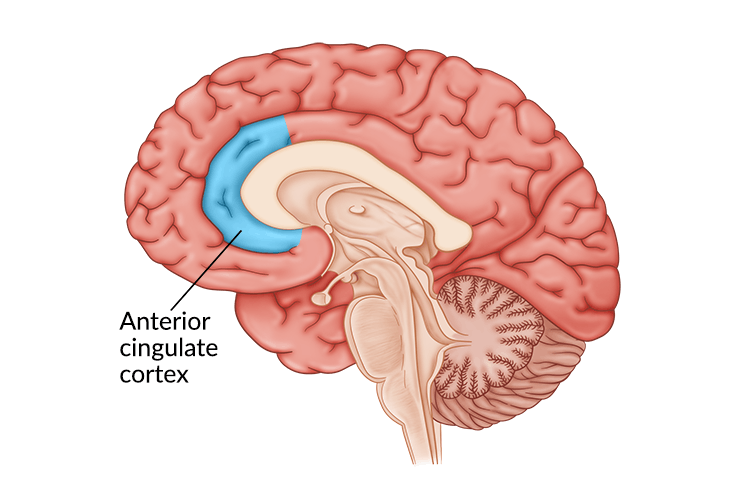
"You have power over your mind—not outside events. Realize this, and you will find strength."
— Marcus Aurelius
In January’s featured articles, we have already seen how a single meditation session can lead to measurable improvements in mental performance - and how as little as five minutes can make a difference.
Those articles each highlighted different meditation styles, and I have personally heard many different claims about which is “the best” meditation style.
But meditation isn’t about choosing one style over the others - it’s a tool, maybe even a set of tools that strengthens your mind in specific, actionable ways.
Let’s take a closer look at three of the most common styles, and focus on how you can use this knowledge to equip your meditation tool-belt!
Today’s insights is drawn from the scientific article:
“Focused attention, open monitoring and loving kindness meditation: effects on attention, conflict monitoring, and creativity - A review”
Today's newsletter
Takeaways:
🧠 Different types of meditation activate different brain areas:
Different meditation types seem to activate the brain in unique patterns.
🛠️ Use different meditation types as a toolkit:
Different meditation types bring different effects. Use this knowledge to create the best suitable meditation routine for you – or use different meditation types at different times or situations.
Try Therapy, Completely Free from BetterHelp
Stigma, cost, and confusion keep too many people from getting help. BetterHelp is working to change that. For Mental Health Awareness Month, they’re offering 1 free week of therapy, because getting started shouldn’t be the hardest part.
Sign up, take a brief quiz, and you’ll be matched with a licensed therapist in under 48 hours. With over 35,000 professionals and a 4.9/5 average session rating, you’re in good hands. No waiting rooms, no commute: just support when you need it.
This May, try therapy risk-free.
Disclaimer: This summary is based on the article “Focused attention, open monitoring and loving kindness meditation: effects on attention, conflict monitoring and creativity - A review” by Dominique P. Lippelt, Bernhard Hommel & Lorenza S. Colzato and aims to provide key takeaways and a condensed overview of its content. While the essence is drawn from the original article, some parts have been simplified or rephrased to enhance understanding. Please note that we at, OptiMindInsights or any other potential writers or contributors to our summaries, do not accept responsibility for any consequences arising from the use of this summary. The information provided should not be considered a substitute for personal research or professional advice. Readers are encouraged to consult the original article for detailed insights and references. The summary does not include references, but they can typically be found within the original publication. Always exercise due diligence and consider your unique circumstances before applying any information in your personal or professional life. We refer to the creative commons for reproducibility rights.
The study in a nutshell:
In this review article, the authors investigated how three forms of meditation - Focused Attention Meditation (FAM), Open Monitoring Meditation (OMM), and Loving-Kindness Meditation (LKM) - each influence attention, conflict monitoring, and creativity.
Today’s article is a narrative review synthesizing findings from studies on both novice and expert meditators and studies employing various means to measure the effects.
The authors goal is to determine how these meditation practices each influence various aspects of mental performance. While the answers are complex, the study reveals several interesting findings.
Meditation Types & Attentional Scope:
First, it is described how the three meditation types influence attentional scope and how the brain is activated respectively.
Focused Attention Meditation (FAM):
In this type of meditation, practitioners focus on a single object, such as their breath, and redirect attention whenever the mind wanders.
FAM narrows attentional focus, enhances sustained attention, and is associated with increased activity in the dorsolateral prefrontal cortex (dlPFC), a brain region vital for maintaining concentration.

Open Monitoring Meditation (OMM):

Unlike FAM, in OMM, an individual will not focus on a specific thing, but observe one’s own thoughts and experiences without judgment.
This approach broadens attentional scope, enabling individuals to better distribute mental resources. OMM seems to be improving cognitive flexibility and especially activates the Anterior Cingulate Cortex (ACC), which is linked to the ability to monitor ongoing mental states.
Loving-Kindness Meditation (LKM):
In the first newsletter of January, we saw that LKM could immediately enhance mental processing and reduce stress.
LKM combines elements of FAM and OMM, and encourages compassion by first focusing on oneself and progressively extending empathy to others, including those perceived negatively.
This practice integrates focused and open awareness, potentially influencing both narrow and broad attentional processes, and multiple brain areas.
Meditation Types & Conflict Monitoring:
Meditation enhances the ability to resolve distractions and manage competing thoughts by improving conflict monitoring, a cognitive process mediated by the anterior cingulate cortex (ACC).
Focused Attention Meditation (FAM):
FAM can strengthen focus and self-control, helping you perform, and perform accurately, in tasks with high mental demands by training your brain to detect and correct distractions.
Open Monitoring Meditation (OMM):
OMM improves adaptability and emotional balance, making it effective for resolving mental conflicts and managing unexpected challenges.
Loving-Kindness Meditation (LKM):
LKM can reduce emotional interference and attentional biases, which promote calmness and control in cognitively and emotionally demanding situations.
Meditation Types & Creativity
Focused Attention Meditation (FAM):
FAM improves focused problem-solving by enhancing sustained attention and structured thinking, making it ideal for tasks that require precision.
Open Monitoring Meditation (OMM):
OMM can be beneficial for creative idea generation by encouraging flexible thinking and exploring new perspectives. In this situation, this type of meditation could be suitable in relation to brainstorming and innovative tasks.
Loving-Kindness Meditation (LKM):
although the authors mention that it is less studied, LKM may combine the benefits of FAM and OMM, supporting both structured problem-solving and open-ended creativity through its focus on empathy and broad awareness.
What can we learn from this study?
Meditation can enhance attention, conflict resolution, and creativity, with effects varying by type.
FAM sharpens focus and improves sustained attention, OMM encourages open awareness and supports flexible thinking, while LKM fosters compassion and emotional regulation by combining both approaches.
Meditation activates important brain areas, like those that help with focus and managing distractions, improving how well different parts of the brain work together.
Understanding how different types of meditation influence various brain areas and produce unique effects can help you design a meditation routine tailored to your needs. Think of it as a toolkit, which allows you to select the meditation style that best aligns with your goals and what you hope to achieve through your practice.
Quick Answers to Your Top of Mind Questions
🙋♀️ How do different meditation types affect the brain?
Each meditation type activates distinct brain regions. For example, Focused Attention Meditation enhances activity in areas tied to sustained focus, while Open Monitoring Meditation engages regions promoting cognitive flexibility and awareness.
A Special Gift!
As part of our mission to deliver maximum value to our community, Im super happy to announce that we're launching a new initiative. We will be hosting our first of many webinars - starting off, with a focus on meditation 🧘
🗓️ When & Where:
Western Hemisphere | Eastern Hemisphere: |
|---|---|
Online 👨💻 PST: 7:00 PM | Online 👨💻 CET: 4:00 AM |
Online 👨💻 EST: 10:00 PM | Online 👨💻 AEDT: 2:00 PM |
What to Expect:
Arca, a business coach with a background in psychology and neuroscience, will cover the theoretical benefits of meditation and guide you in applying this knowledge practically to your daily life.
If want to be able to harness the full potential of this powerful practice and set yourself up for success, join us!
See you there!
Other resources we found this week
Are your emails being ignored?
Let's face it, email marketing is the cornerstone of all successful businesses.
If you want to enroll clients into your services or programs you simply must have an engaged email list.
For your emails to work, they must first be opened, that's why I'm delighted to promote my good friend Carrie Wallis' gift: "30 High-Converting Email Subject Line Templates", you can download it here.
Finishing statement: At OptiMindInsights we respect the contributions of researchers and aim to make scientific findings more accessible. Our summaries are prepared with care to comply with the Creative Commons Attribution 4.0 International License and other applicable terms.If you believe any part of our content does not meet these standards or if you have any concerns, please contact us at [email protected]m. Your input is crucial in helping us maintain respect and accuracy in our work.
Thank you for your support in making scientific knowledge more accessible.
